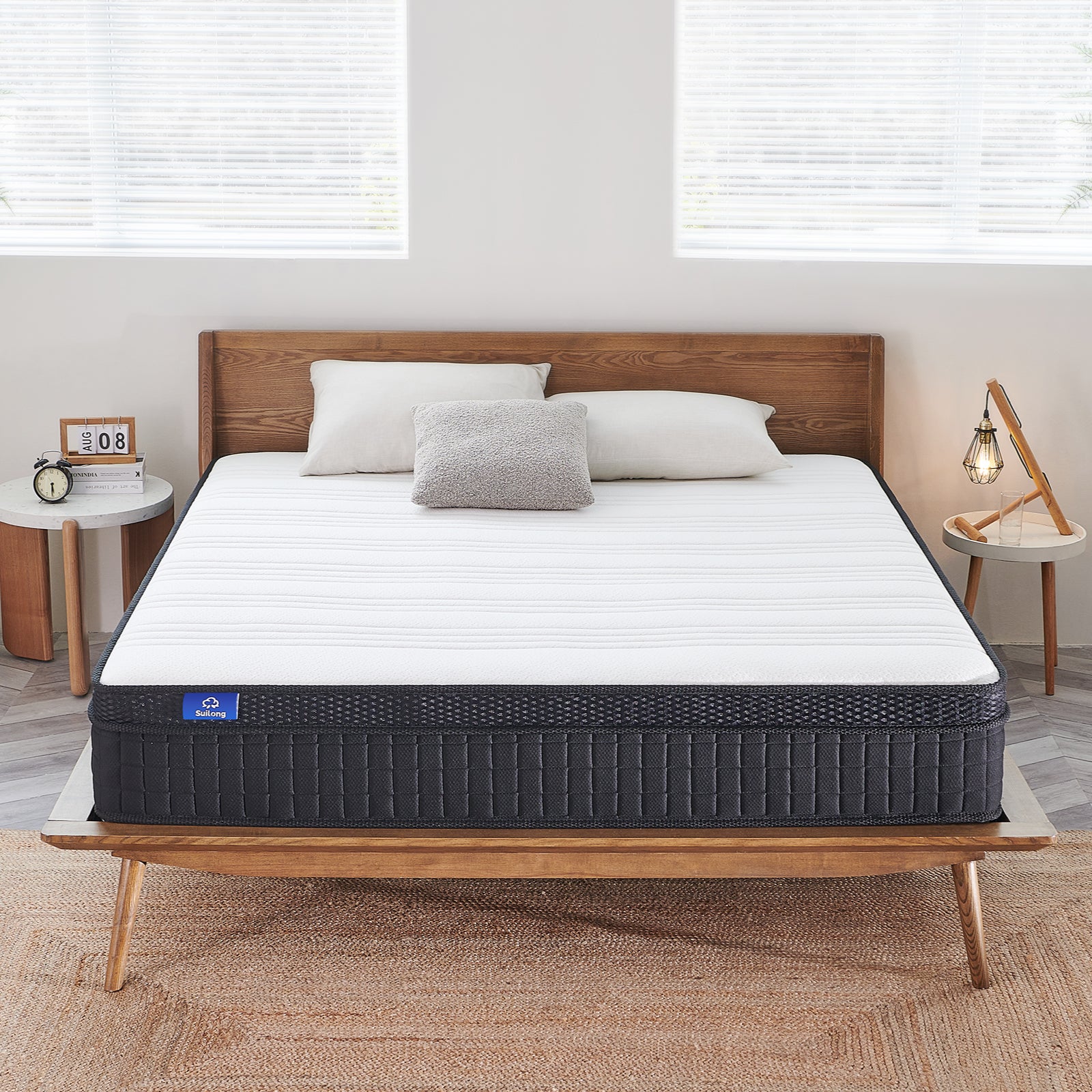What Is The Best Temperature For Sleep

Did you know that the temperature of your bedroom can significantly impact the quality of your sleep? For many, finding that 'just right' temperature feels like an elusive pursuit. But with research pointing to a specific range as the ideal sleep temperature, it's time to tune into the thermostat for better zzz's.
In this guide, we dive deep into the world of sleep temperatures, understanding its influence on restful nights, and offering tangible tips for creating the perfect sleep environment.
1. Relationship between sleep temperature and health
Temperature, which not only affects our comfort, but also directly affects the depth and quality of sleep.
- The effect of sleeping temperature on health: A suitable temperature can speed up the speed of entering deep sleep, strengthen the immune system and reduce the risk of diseases. On the contrary, too cold or too hot environment will cause difficulty in falling asleep, easy to wake up and affect the body's self-repair.
- Relationship between temperature and deep sleep: Deep sleep is most easily achieved at a temperature of 18-22° Too low a temperature will cause the body to react to warmth, while too high a temperature will cause the body to continuously dissipate heat, both of which will interfere with the arrival of deep sleep.
- The effect of temperature on hormones: Melatonin is an important hormone that controls the body's biological clock. The right temperature can promote its secretion and help the body enter a natural sleep state.

2. Optimal Sleeping Temperature for Infants
Why are babies particularly sensitive to temperature? : Infants' thermoregulatory mechanism is not yet fully matured, so they are more responsive to temperature changes and are prone to temperature abnormalities.
Ideal sleeping temperature for infants: It is recommended to keep the temperature in the baby's room at 18-20°C. Too high a temperature may lead to overheating and dehydration, while too low a temperature may cause colds.
3. How does temperature affect sleep?
The role of temperature on sleep onset: The human body can easily fall asleep in an environment slightly lower than normal body temperature. Higher temperatures accelerate the body's heat dissipation, which is not conducive to sleep onset.
Body temperature and REM sleep: During REM sleep, the brain is active and the thermoregulatory centre fails, so the ambient temperature should be moderate to maintain a normal body temperature.
4. What are the problems associated with an overheated bedroom?
Overheating and nighttime awakenings: Excessive temperatures can increase the number of nighttime awakenings, interrupt the sleep cycle, and make it difficult to fall into a deep sleep.
The health risks of overheating: Long-term overheated sleeping conditions can accelerate skin aging and weaken the body's immune system.

5. Tips to keep your bedroom cool
Choose the right bedding: Use cotton and linen in summer and wool or silk in winter to maintain a comfortable sleeping temperature.
Use natural ventilation and air-conditioning: Use air-conditioning wisely, but don't blow directly, use a fan to circulate the air. Curtains and blinds can effectively insulate against heat.
6. Suilong Mattress: The Scientific Sleep Solution
As a Suilong mattress manufacturer, we use biomechanical design and ergonomics as a starting point to provide mattresses with the right temperature and firmness. In addition, natural and environmentally friendly materials are added to ensure healthy sleep and create the most suitable temperature environment for you to sleep.
7. Other factors: Considerations beyond temperature
Humidity and air quality: Maintain a humidity level of 45%-65%, avoid dryness or humidity, and ensure fresh air circulation.
Light and Noise: Choose blackout curtains to avoid strong light interference; keep the room quiet, you can use a white noise machine to mask outside noise.
FAQs
Q1: What is the ideal temperature for adults to sleep in?
A1: The ideal sleep temperature for most adults is between 60-67°F (15-19°C), though individual preferences may vary.
Q2: Why is temperature so crucial for a good night's sleep?
A2: Temperature plays a role in regulating our body's circadian rhythm and sleep-wake cycle. A cooler environment can signal the body it's time to sleep and can help achieve deep, restorative sleep.
Q3: How can I adjust my bedroom's temperature without an air conditioner?
A3: You can use fans, open windows for cooler outside air, use breathable beddings like cotton, and invest in cooling pillows or mattress toppers.
Q4: Are there risks associated with sleeping in a room that's too cold?
A4: Yes, excessively cold temperatures can disrupt REM sleep and may lead to conditions like colds or respiratory problems in the long run.
Q5: How does room temperature affect infants differently than adults?
A5: Infants have a less developed thermoregulatory system, making them more sensitive to temperature changes. It's crucial to keep their room at a comfortable range of 65-70°F (18-21°C) to ensure safety.
Q6: How does room temperature relate to sleep quality?
A6: Room temperature affects the ability to fall asleep and stay asleep. Inappropriate temperatures can lead to frequent awakenings and reduced deep sleep stages, affecting overall sleep quality.
Q7: Do cooling pillows or cooling mattress pads really work?
A7: Yes, cooling pillows and mattress pads use materials that dissipate heat and promote airflow, which can help regulate sleep temperature and improve comfort.
Q8: How can humidity levels affect sleep?
A8: High humidity can make a room feel warmer and can lead to sweating, while low humidity can dry out mucous membranes causing discomfort. Maintaining a balanced humidity level between 40-60% is advisable for optimal sleep.
Q9: Are there any health benefits to sleeping in a colder room?
A9: Sleeping in a slightly colder room can improve sleep quality, enhance metabolism, and boost the production of melatonin, the sleep hormone.
Q10: Should I adjust my sleepwear based on my bedroom's temperature?
A10: Absolutely. Choosing the right sleepwear, like lightweight cotton pajamas in a warmer room or warmer fabrics in cooler settings, can help regulate body temperature and improve sleep.
In the realm of sleep quality, temperature plays a starring role. Striking a balance between too hot and too cold can be the key to unlocking nights of deep, uninterrupted sleep. By understanding the science behind sleep and temperature and making necessary adjustments to our environment, we take a significant step towards better health, well-being, and productivity. Sleep is a pillar of health, and now, with the insights from this guide, you're equipped to turn up the dial on better rest.
Read More:
https://suilong.org/blogs/blogs/what-is-the-best-queen-size-bed
https://suilong.org/blogs/blogs/ultimate-guide-to-choosing-the-perfect-mattress-for-couples
https://suilong.org/blogs/blogs/choosing-the-right-mattress
https://suilong.org/blogs/blogs/best-mattress-in-a-box-a-boxed-mattress-buying-guide
https://suilong.org/blogs/blogs/can-a-bad-mattress-cause-neck-and-shoulder-pain
-
Posted in
Lifestyle, Shopping Tips, Side Sleepers, Sleep Experts, sleep position, Sleep Tips, sleeping positions
















